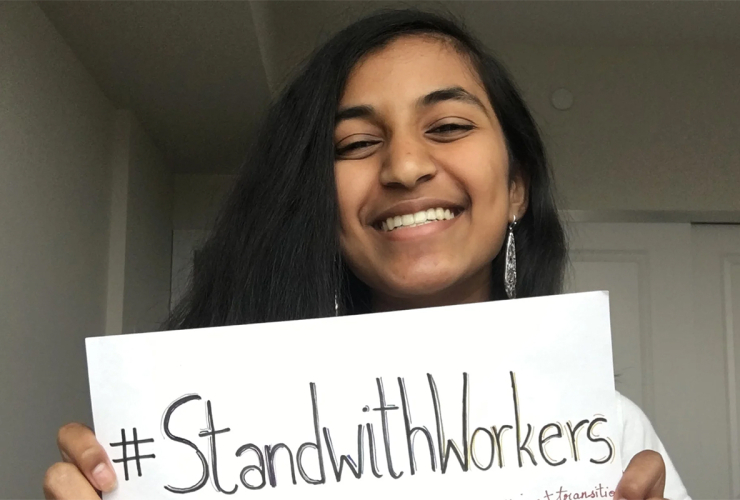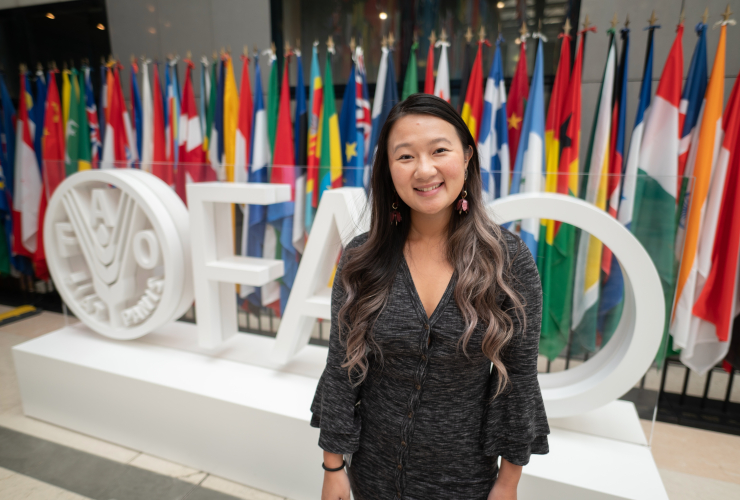Azam Jangravi climbed atop an electrical transformer box in Tehran in February 2018, removed her headscarf and waved it at the crowd.
Jangravi knew she would most certainly be arrested; the Iranian regime demands women cover their heads with scarves, known as hijabs. But she could no longer sit by while the regime trampled the rights of women.
“I saw systematic violence against women, sexual harassment, and injustice. A 13-year-old girl was raped but the regime did nothing to give her justice,” Jangravi said. “So, I decided … to fight for our rights, to fight for all women's rights in Iran.”
Jangravi was lucky. She managed to escape a three-year jail term while out on bail, and with the help of a human smuggler, made it to Newmarket, Ont., her new home. Now, on the eve of International Women’s Day, she is continuing her human rights work by calling on the Canadian government to put more pressure on the Islamic Republic of Iran for its crackdown on protesters.
“The regime is killing innocent people every day; statements and condemnations are not enough to pressure the regime. Iranian people want regime change in their country and the Canadian government should support the Iranian people,” said Jangravi.
Women in Iran are treated as second-class citizens, she said. Rape, torture and imprisonment are common, and they have no choice in how they live, she said.
“Now the brave women of Iran started a nationwide movement of ‘Women, Life, Freedom.’ Iranian women and girls have been standing up for their rights in the face of inequality and oppression. We want international support, and we want the Canadian government’s support.”
Jangravi said the Canadian government should officially recognize the “Women, Life, Freedom” movement as the true representative of Iranian people abroad and support protesters with internet technology to help keep a digital lifeline open for protesters so they can continue their protest against the regime until it is changed.
Jangravi, who is famous for being one of the “Girls of Enghelab” protesters, told Canada’s National Observer that last month, her brother was arrested because of her role in the protests after Mahsa Amini’s death and her family back in Iran can’t talk to her for fear they will be arrested.
Iran has been gripped by protests since the death of Amini, a 22-year-old Iranian of Kurdish origin who was detained by Iran’s morality police for failing to fully cover her hair with her hijab.
Hundreds of thousands across Iran have taken to the streets since Amini’s death on Sept. 16, 2022.
Iranian forces responded with a deadly crackdown. Hundreds of protesters have been killed, including at least 52 children, according to Human Rights Watch.
World leaders condemned Iran’s crackdown and people in cities around the globe have held solidarity protests.
Foreign Affairs Minister Mélanie Joly said in a media statement that Canada will continue to co-ordinate with its international partners to respond to Iran’s egregious treatment of its people.
“The Iranian regime continues to brutally oppress its people and deny their fundamental rights and freedoms. We hear the pleas of the Iranian people, and we commend them for their bravery and resilience. Canada will not stop advocating for Iranians and their human rights,” the statement reads.
Global Affairs Canada has banned more than 10,000 senior Islamic Revolutionary Guard Corps officials, as well as members of the IRGC, from entering Canada.
This story was produced in partnership with Journalists for Human Rights for the Afghan Journalists-in-Residence program funded by the Meta Journalism Project.






Comments